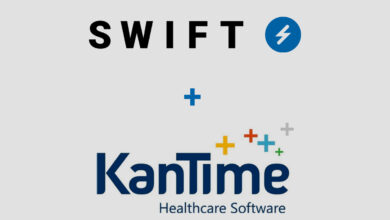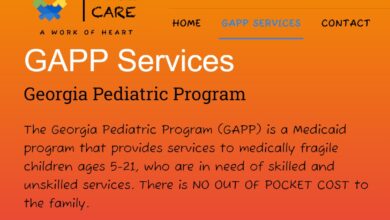5 Things You Should Know About Medicare

Medicare is a government-sponsored health insurance program that provides coverage for individuals who are 65 years or older, as well as certain younger individuals with disabilities. Understanding the ins and outs of Medicare can be daunting, but it’s essential to make informed decisions about your healthcare.
In this article, you will explore five crucial aspects of Medicare that you should know.
1. The Different Parts of Medicare
Medicare is divided into several parts, each covering specific aspects of healthcare. Understanding these parts will help you navigate the program more effectively.
Part A: Hospital Insurance
Medicare Part A primarily covers hospital stays, skilled nursing facility care, some home healthcare services, and hospice care. Most people do not pay a premium for Part A if they or their spouse have paid Medicare taxes while working.
Part B: Medical Insurance
Medicare Part B covers medically necessary services such as doctor visits, preventive services, outpatient care, and durable medical equipment. There is a monthly premium for Part B, which is typically deducted from your Social Security benefits.
Part C: Medicare Advantage Plans
Part C, also known as Medicare Advantage, offers an alternative way to receive your Medicare benefits. These plans are offered by private insurance companies approved by Medicare, and they often include Part A, Part B, and sometimes Part D coverage. Medicare Advantage plans may also offer additional benefits such as dental, vision, and hearing coverage.
Part D: Prescription Drug Coverage
Medicare Part D provides coverage for prescription drugs. These plans are offered by private insurance companies approved by Medicare. It’s important to choose a Part D plan that covers your specific medications to avoid high out-of-pocket costs.
2. The Eligibility Requirements for Medicare
To be eligible for Medicare, you must meet certain requirements. Understanding these requirements will help you determine when you can enroll in the program.
Age Requirement
Most people become eligible for Medicare when they turn 65. However, if you are under 65, you may still qualify for Medicare if you have certain disabilities or end-stage renal disease.
Citizenship and Residency
To be eligible for Medicare, you must be a U.S. citizen or a legal permanent resident who has lived in the country for at least five continuous years.
Work History
Typically, you or your spouse must have paid Medicare taxes for at least ten years while working. This work history requirement ensures that you are eligible for premium-free Part A coverage.
3. The Coverage Options Under Medicare
Medicare offers various coverage options to meet your specific healthcare needs.
Original Medicare
Original Medicare refers to Part A and Part B coverage. It provides a baseline of coverage for hospital stays, doctor visits, and other medically necessary services. However, it does not cover prescription drugs or most dental, vision, and hearing care.
Medicare Advantage Plans
Medicare Advantage plans in Nebraska, or in your area, combine Part A, Part B, and sometimes Part D coverage into one comprehensive package. These plans are offered by private insurance companies and may provide additional benefits such as prescription drug coverage and extra services like gym memberships.
Medicare Supplement (Medigap) Insurance
Medigap policies are supplemental insurance policies that can help cover the out-of-pocket costs associated with Original Medicare. These policies are sold by private insurance companies and can help pay for expenses like deductibles, copayments, and coinsurance.
4. The Common Misconceptions About Medicare
There are several common misconceptions about Medicare that can lead to confusion and misinformation. Let’s debunk some of these myths and provide you with accurate information.
Myth 1: Medicare Covers Everything
Contrary to popular belief, Medicare does not cover all healthcare costs. There may be gaps in coverage, such as dental, vision, hearing, and long-term care. Understanding these gaps can help you plan for additional coverage through private insurance or other means.
Myth 2: Medicare Is Free
While Medicare Part A is generally premium-free for most individuals, Part B and Part D come with monthly premiums. Additionally, there are deductibles, copayments, and coinsurance that you may need to pay out of pocket.
Myth 3: Medicare Enrollment Is Automatic
Medicare enrollment is not automatic for everyone. If you are already receiving Social Security benefits, you will likely be enrolled in Medicare automatically. However, if you are not receiving Social Security benefits, you will need to actively enroll in Medicare during the Initial Enrollment Period.
5. How to Enroll in Medicare
Enrolling in Medicare is a straightforward process, but it’s important to understand the timelines and requirements to ensure you don’t miss out on coverage.
Initial Enrollment Period
Your Initial Enrollment Period begins three months before your 65th birthday month and lasts for seven months. During this period, you can enroll in Medicare Part A and Part B. It’s crucial to enroll during this period to avoid potential penalties and gaps in coverage.
Special Enrollment Period
In some situations, you may qualify for a Special Enrollment Period that allows you to enroll in Medicare outside of the Initial Enrollment Period. Common situations include losing employer-sponsored coverage or moving out of your current coverage area.
General Enrollment Period
If you missed your Initial Enrollment Period and do not qualify for a Special Enrollment Period, you can enroll in Medicare during the General Enrollment Period, which runs from January 1st to March 31st each year. However, late enrollment may result in higher premiums.
Conclusion: Making Informed Decisions About Medicare
Navigating the world of Medicare can be overwhelming. However, by arming yourself with the knowledge above, you can make informed decisions about your healthcare and ensure that you have the coverage you need during your retirement years.



